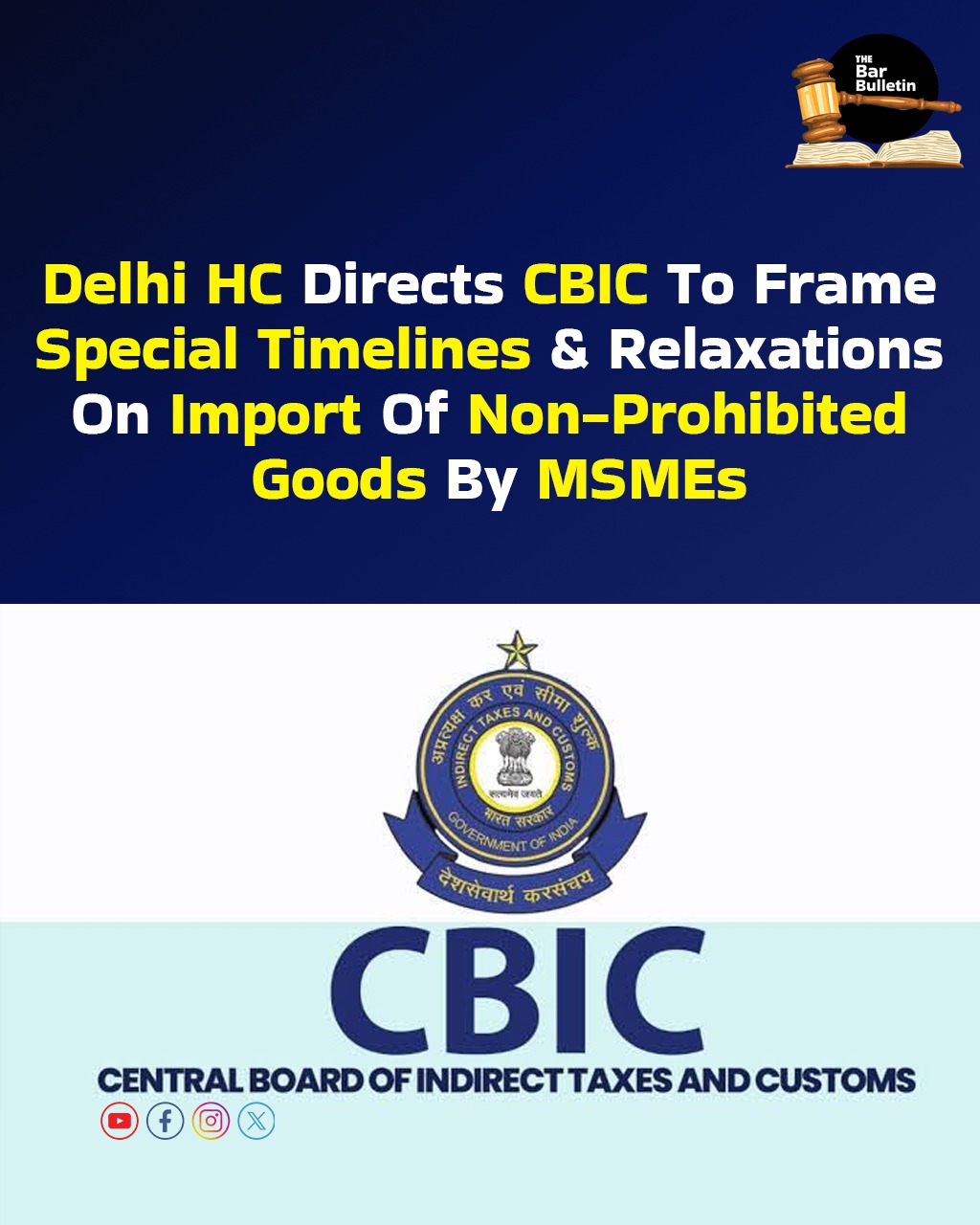The Delhi High Court directed the immediate release of the goods within 24 hours upon the petitioner’s payment of the differential duty of Rs. 24,249. The Court, however, stayed at this stage the requirement to pay the redemption fine of Rs. 10,000 and penalty of Rs. 5,000.
There has to be a truthful declaration in the bills of entry; however, all misdeclarations cannot be treated similarly. Therefore, finding that the goods detained by the Customs Department were not ‘prohibited goods’, the Court also noted that Section 110 of the Customs Act, which allows 6+6 months for confiscation proceedings, may be too long in cases involving non-prohibited goods imported by MSMEs, and thus CBIC should consider framing special timelines and relaxations.
The Reserve Bank of India (Priority Sector Lending – Targets and Classification) Directions, 2025, Micro & Small Enterprises Cluster Development Programme (MSE-CDP) Scheme, International Cooperation (IC) Scheme, and Self-ReliantIndia (SRI) Fund Empowering MSMEs for Aatmanirbhar Bharat, has been referred to emphasize that Customs must be sensitive to MSMEs and facilitate trade instead of burdening them with procedural rigidity. Accordingly, the Court asked the CBIC and the Commissioner of Customs to review the framing of guidelines granting preferential treatment to start-ups/MSMEs in matters of timelines, warehousing, and provisional release of low-value, non-prohibited goods.
The Division Bench comprising Justice Pratibha M. Singh and Justice Shail Jain observed that the undeclared 20,860 pieces amounted to misdeclaration under Section 46(4) of the Customs Act, 1962, and the Order-in-Original passed under Sections 111(l), 112(a)(ii), and 125, rightly imposed duty, penalty, and fine. However, since the goods were merely cosmetic caps and bottles, neither prohibited nor harmful, the Bench stressed that not all misdeclarations should be treated alike, and proportionality must be applied. Further, since the petitioner had accepted the liability and the delay in proceedings was attributable to the Customs Department, resulting in Rs. 3.88 lacs demurrage on goods worth Rs. 4 lacs, the Bench observed that fiscal laws must be construed strictly, and writ courts can intervene to prevent manifest injustice, especially where procedural rigidity undermines the policy of supporting MSMEs/start-ups.
Briefly, in this case, the Petitioner, an MSME start-up engaged in the business of baby care products, had imported packaging materials from Dubai. At the port, the Customs found 20,860 undeclared extra pieces and excess weight, treating it as misdeclaration under Section 46(4) of the Customs Act. Though the petitioner accepted discrepancies and liability in July 2025, the Customs Officer delayed the Order-in-Original till August 2025, imposing a differential duty of Rs. 24,249, a redemption fine of Rs.10,000, and a penalty of Rs. 5,000. Meanwhile, goods worth Rs. 4 lacs attracted demurrage of Rs. 3.88 lacs. The petitioner, led by its director, who had shifted from Dubai under the Make in India scheme, therefore begged for the release of goods, waiver of charges, and compensation, arguing that the items (cosmetic caps and bottles) were not prohibited.
Appearances:
Advocates Riya Soni and Sunil Kumar Tripathi, for the Petitioner/ Taxpayer
Advocates Anushree Narain and Naman Choula, for the Respondent/ Revenue



